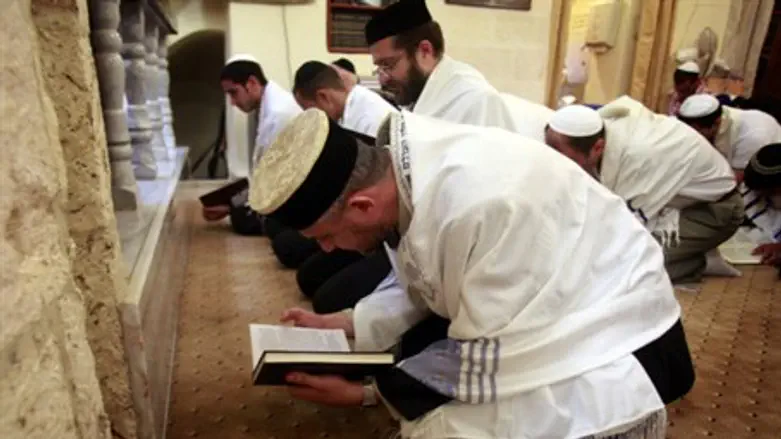
In the midst of the military standoff between Ukraine and Russia, the Crimean peninsula's 800 Karaites, a religious sect that splintered from Judaism, is firmly supporting Russia.
The Karaites broke off from Judaism in the 8th or 9th century, when they rejected the Oral Law in favor of following their own interpretations of the Torah.
Anna Polkanova, a member of the Crimean Karaite community who has studied the group's history, clarified to AFP that "we do not define ourselves as Jews."
Despite having taken Judaism as their origin, the Karaites separated from and opposed Judaism very early on, and consequently were not targeted in the Holocaust and other anti-Semitic violence in Europe given that they are not Jews.
The Crimean Karaite community cemetery features 7,000 limestone graves, some bearing Hebrew inscriptions. "This is a sacred place for us. People come here on pilgrimage," said Polkanova, claiming the cemetery is "2,000 years old."
Crimea, where the community is located, held a controversial referendum vote last month and was annexed by Moscow, after a de facto military invasion of the region.
An aging community
The local Karaite community is aging quickly, and most Karaites in Crimea's main city of Simferopol do not attend religious services on Saturday mornings.
Svetlana Shergene, a 74-year-old Karaite in Simferopol, noted that the elderly congregation prays in a local school building due to the lack of a Karaite prayer house, called kenassa.
The former kenassa of Simferopol, built in the 1800s, was turned into a local television station during the Soviet era, when the building's Star of David was replaced with a communist red star.
"Look at that, the kenassa has not been renovated since it was built," remarked Vladimir Ormeli, the president of the Association of Crimean Karaites, speaking about the building.
Ormeli claims that efforts to gain possession of the Karaite cemetery, the two existing Crimean kenassas, and the Chufut-Kale fortress that houses one of the kenassas, have been opposed by the Ukrainian authorities.
For this reason, Ormeli says the community is supportive of the newly imposed Russia invasion and annexation.
"Most of us are hopeful," Ormeli said, claiming that his co-religionists are "closer to Russian, rather than Ukrainian culture."
Soviet rule reportedly caused the near disappearance of the Karaim language, which is closely related to that of the Crimean Tartar Muslim community which was deported from the region in 1944 by Soviet dictator Joseph Stalin.